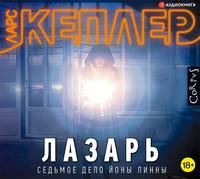
Полная версия
Cop Killer
‘Skateholm,’ Allwright said. ‘This is where my territory ends. Now we're coming into the Ystad Division. I'll take you to Abbekås. This is Dybeck. Swampy and miserable. Worst part of the whole coast. Maybe she's out there in the mud. Okay, this is Abbekås.’
Allwright drove slowly through the village.
‘Yes, this is where she lived,’ he said. ‘The woman who got me to give up women. Do you want to have a look at the harbour?’
Martin Beck didn't bother to answer.
There was a little harbour with some benches for telling fish stories and a few old men in Vega caps. Three fishing boats. Stacks of herring boxes, and some nets hung up to dry.
They got out and sat down on separate bollards. Gulls screamed above the breakwater.
The green Fiat had stopped sixty feet away. The two men stayed in the front seat.
‘Do you know them?’ said Martin Beck.
‘No,’ said Allwright. ‘They're just boys. If they want anything, they can come over here and talk. Must be damned dull just sitting there staring.’
Martin Beck said nothing. He got older and older himself, while the reporters got younger and younger. Their relations grew worse and worse every year. Besides, the police weren't popular any more, assuming they ever had been. Personally, Martin Beck didn't feel he had to be ashamed of his job, but he knew a lot of men who were, and still more who really ought to be.
‘What was all that about me and women?’ Allwright asked.
‘It occurred to me that we know very little about Sigbrit Mård. We know what she looks like and where she works, and we know she has never made trouble. We know she's divorced and doesn't have any children. And that's about all. Have you considered the fact that she's at an age when a lot of women feel frustrated, especially if they don't have any children or family or any special interests? When they're approaching menopause and starting to feel old? They feel like their lives have gone wrong, their sex lives in particular, and they often do dumb things. They're attracted to younger men, they get involved in stupid affairs. And they often get taken, financially or emotionally.’
‘Thanks for the lecture,’ Allwright said.
He picked up a board from the ground and threw it in the water. The dog splashed in immediately to retrieve it.
‘Terrific,’ Allwright said. ‘Now he'll make an even worse mess in the back seat. And so you think maybe Sigbrit had a secret sex life or something.’
‘I think it's possible. I mean we have to look into her private life. As much as we can. I mean maybe, after all, there is a chance, just maybe, that she's simply run off with some man who's seven or eight years younger. Just run away from everything in order to be happy for a while. Even if it's only two weeks or a couple of months.’
‘Get herself good and laid,’ Allwright said.
‘Or get a chance to talk to someone she thinks she can relate to.’
Allwright put his head on one side and grinned.
‘That's one theory,’ he said. ‘But I don't believe it.’
‘Because it doesn't fit.’
‘Right. It doesn't fit at all. Do you have a plan? Or is that a presumptuous question?’
‘I'm planning to wait until Lennart gets here. And then I think it's time for an informal chat with Folke Bengtsson and Bertil Mård.’
‘I'd be happy to come along.’
‘I don't doubt it.’
Allwright laughed. Then he stood up, walked over to the green car, and rapped on the side window. The driver, a young man with a red beard, rolled it down and looked at him questioningly.
‘We're going back to Anderslöv now,’ Allwright said. ‘I'll be driving through Källstorp to pick up some eggs from my brother. But you can save your paper some money if you take the road through Skivarp.’
The Fiat followed them and supervised the egg pickup.
‘They clearly don't trust the police,’ Allwright said.
Otherwise nothing much happened that day, which was Friday, 2 November.
Martin Beck made his obligatory visit to Trelleborg and met the Commissioner and the Superintendent who was head of the criminal division. He envied the police chief his office, because it had a view of the harbour.
No one had anything to say about the case.
Sigbrit Mård had been missing for seventeen days, and all anyone knew was the gossip doing the rounds in Anderslöv.
On the other hand, gossip is often well-founded.
Where there's smoke there's fire.
That evening, he got a call from Kollberg, who said he hated driving and was planning to spend the night in Växjö.
‘And how are things in Anderstorp?’ he said.
‘The name is Anderslöv.’
‘Oh yes.’
‘And it's very pleasant here, but the reporters are after us already.’
‘Put your uniform on, you'll get more respect.’
‘None of your wisecracks!’ said Martin Beck.
Then he called Rhea, but there was no answer.
He tried again an hour later and once more just before he went to bed.
This time she was home.
‘I've been trying to get you all evening,’ he said.
‘Really?’
‘What have you been up to?’
‘None of your business,’ she said cheerfully. ‘How's it going?’
‘I don't know for sure. There's a woman who's disappeared.’
‘People can't just disappear. You ought to know that – you're a detective.’
‘I think I love you.’
‘I know you do,’ she said happily. ‘I went to the cinema, and then I went to Butler's for something to eat.’
‘Good night.’
‘Was that all you wanted?’
‘No, but it can wait.’
‘Sleep well, darling,’ she said, and hung up.
Martin Beck hummed as he brushed his teeth. If anyone had been there to hear it, it would probably have sounded odd.
The next day was a holiday. All Saints' Day. He could always spoil it for someone. Månsson in Malmö for example.
6
‘I've met a lot of gorillas in my day,’ Per Månsson said. ‘But Bertil Mård is one of the worst.’
They were sitting on Månsson's balcony overlooking Regementsgatan, enjoying a lovely day.
Martin Beck had taken the bus to Malmö, mostly for the fun of it and so he could say that he had actually travelled the stretch that Sigbrit Mård apparently had not.
He had also tried to question the bus driver, to no avail, since the man was a substitute and had not been driving on the day in question.
Månsson was a large, leisurely man, who took life easy and was seldom guilty of an overstatement. But now he said:
‘The man struck me as a bully.’
‘Lots of sea captains go a bit funny,’ said Martin Beck. ‘They're often very lonely men, and if they're the overbearing type they tend to get tough and autocratic. They turn into gorillas, as you said. The only person they'll talk to is their chief.’
‘Their chief?’
‘The Chief Engineer.’
‘Oh.’
‘A lot of them drink too much and tyrannize their crews. Or else they pretend they don't even exist. Won't even speak to their mates.’
‘You know a lot about ships.’
‘Yes, it's my hobby. I had a case once on a ship. Murder. In the Indian Ocean. On a freighter. One of the most interesting cases I ever had.’
‘Well, I know the skipper of the Malmöhus. He's a decent fellow.’
‘Passenger ships are usually a different matter. The owners put on a different kind of officer. After all, the captains have to socialize with the passengers. On the big ships, they have a captain's table.’
‘What's that?’
‘The captain's own table in the dining room. For entertaining prominent first-class passengers.’
‘I see.’
‘But Mård sailed on tramp steamers. And there's a certain difference.’
‘Yes, he was pretty damned arrogant,’ Månsson said. ‘Yelled at me and cursed his missus. Nasty son of a bitch. He thought he was something special. Rude and arrogant. I'm pretty easygoing, but I damned near lost my temper. That takes some doing.’
‘How does he make a living?’
‘He's got a brewpub in Limhamn. You know the story. He drank his liver to pieces in Ecuador or Venezuela. They had him in the hospital out there for a while. Then the shipping company flew him home. They wouldn't give him a clean bill of health, so he couldn't ship out again. He moved home to his wife in Anderslöv, but that didn't work out at all. He hit the bottle and beat her. She wanted out. He didn't. But she got her divorce, no sweat.’
‘Allwright says he's got an alibi for the seventeenth.’
‘Yes, sort of. He took the train ferry over to Copenhagen to go on a bender. But it's a rotten alibi. Seems to me. Claims he sat in the forward saloon. The ferry sails at a quarter to twelve these days – it used to sail at noon. He says he was alone in the saloon, and the waiter was hung over. And there was one crewman standing in there playing the slot machine. I often take that boat myself. The waiter, whose name is Sture, is always hung over, with bags under his eyes. And that same crewman is generally standing there stuffing one-krona pieces in the slot machine.’
Månsson took a noisy sip of his drink. He always drank the same thing, a mixture of gin and grapefruit soda. It is a Finland-Swedish speciality, called Gripenberger after some obscure officer and nobleman.
The weather was nice in Malmö. The city seemed almost inhabitable.
‘I think you ought to talk to Bertil Mård yourself,’ Månsson said.
Martin Beck nodded.
‘The witness on the ferry identified him,’ Månsson said. ‘He's got the kind of looks you don't forget. The only trouble is that all those things happen every day. The ferry leaves here at the same hour, usually with the same passengers. You can't count on the crew remembering someone a couple of weeks later, and you can't be sure they'd have the right day. Talk to him yourself and see what you think.’
‘But you have already questioned him?’
‘Yes, and I wasn't specially convinced.’
‘Does he have a car?’
‘Yes. He lives on the West Side, a stone's throw from here if you've got a hell of a good arm. Mäster Johansgatan 23. Takes him half an hour to drive to Anderslöv. Roughly.’
‘What makes you point that out?’
‘Well, he seems to have made the trip now and then.’
Martin Beck let the question drop.
It was 3 November, a Saturday, and still almost summer. It was also a holiday – All Saints' Day – but Martin Beck was planning to disturb Captain Mård's tranquillity in spite of it. The chances were he wasn't a religious man.
There had been no word from Kollberg. Perhaps he had found Växjö fascinating and decided to stay over for a day. But in what way fascinating? Perhaps someone had seduced him with illegal fresh crayfish. Of course, frozen crayfish were now available, but Kollberg was not easily deceived. Least of all in the matter of crayfish.
Rhea had called that morning and cheered him up. As always. In one year she had changed his life and given him more satisfaction than twenty years of marriage to a person he had actually loved once, a person who had presented him with two children and many a joyful moment. Just count them. For that matter, ‘presented’ was a lousy word. They had been in it together, hadn't they? Well maybe so, but he had never had that feeling.
With Rhea Nielsen, everything was different. They had a free and open relationship, of course. Perhaps a little too free and open, it seemed to him every once in a while. But first and foremost, there was a sense of community that stretched far beyond his love for this curiously perfect woman. Together with her, he had begun to mix with people in a manner that had never been possible for him before. Her building in Stockholm was quite different from the average apartment building. You might almost call it a commune, though with none of the negative connotations – often warranted but just as often imaginary – of that discredited term. People in communes smoked pot and screwed around like rabbits. The rest of the time they talked a lot of bullshit and ate macrobiotic food, and none of them worked and they all lived on welfare. The commune members considered themselves the victims of an evil social system. They often took LSD and thought they could fly, or drove a stiletto into their best friend's belly for the enrichment of the experience, or else they killed themselves.
It wasn't so very long since he had thought that way himself, at least in part and at times. And certainly there was a grain of truth there, or rather a whole wheatfield.
Martin Beck's position gave him the doubtful pleasure of reading confidential reports. Most of them were political, and he threw them directly into the Out basket for secret papers, to be passed on to the next bureaucrat with clearance. But he usually read the ones that seemed to have some connection with his own job. Suicide, for example, was a subject that had begun to interest him more and more. And secret memoranda on the subject cropped up with increasing regularity. The point of departure was always the same: Sweden led the world by a margin that seemed to grow larger from one report to the next, but, as with so many other things, the National Commissioner had decreed that nothing must get out. On the other hand, the explanation varied. Other countries cheated on their statistics. For a long time it had been popular to single out the Catholic countries, but then the Archbishop and some religious bigwigs within the police department had begun to complain, so then countries with a socialist form of government had had to take their place. But Swedish intelligence had immediately made difficulties, on the grounds that they could no longer use priests as spies. Since the secret activities of the Security Police fell into the category of things that always, inevitably, got out, a sigh of relief was heaved at National Police Administration Headquarters. Rumour had it that the National Commissioner himself had expressed certain misgivings at the suggestion that Swedish priests, some of whom were outright card-carrying Reds, would be able to spy on Swedish Communists or bring so formidable an opponent as the Soviet Union to its knees.
But as usual, all of this was unconfirmed rumour. Out must nothing get, as they sometimes put it – for a joke, or at least for the sake of putting it some different way. But the faithful would tolerate no deviation. ‘Nothing must get out’ was the proper expression.
And that was that.
The gist of the latest suicide manifesto was as follows: Since most people neither shoot themselves nor jump off Väster Bridge but get good and drunk instead and then swallow a bottle of sleeping pills, they could be written off as cases of accidental poisoning and completely eliminated from the statistics, which would thus suddenly become amazingly auspicious.
Martin Beck thought about these things a lot.
Månsson poured some more grape juice in his Gripenberger.
He had not spoken for some time, and to judge by his clothing he wasn't planning to go anywhere.
He was wearing a nightshirt, flannel trousers, and terry-cloth slippers, plus a bathrobe that seemed to be part of the ensemble.
‘The wife will be here in a little while,’ he said. ‘Usually shows up around three o'clock.’
Månsson had apparently gone back to his life as five-sevenths bachelor, in that he spent five days of the week alone and the weekends with his wife.
They had separate apartments.
‘It's a good system,’ he said. ‘It's true, I did have a girlfriend in Copenhagen for a year or so. And she was terrific, but it got to be too much of a good thing. I'm not as young as I used to be.’
Martin Beck thought for a moment about what the other man had said.
True, Månsson was older than he was, but not by more than a couple of years.
‘But she was damned good for me as long as it lasted. Her name was Nadja. I don't know if you ever met her.’
‘No,’ Martin Beck said.
He suddenly wanted to change the subject.
‘By the way, how's Benny Skacke doing?’
‘Not bad. He's an inspector now, and married to his physiotherapist. They had a little girl last spring. She was born on a Sunday, a little ahead of schedule, and he was in Minnesberg playing football when it happened. He claims all the important things in his life happen while he's playing football. God knows what he means.’
Martin Beck knew quite well what Skacke was referring to, but he didn't say anything.
‘In any case, he's a good policeman,’ Månsson said. 'And there's getting to be a shortage of those. Unfortunately, I get the feeling he's not happy here. He can't get used to this city, somehow. He's been here almost five years, but I think he's still homesick for Stockholm.
‘Of all godforsaken places,’ he added philosophically and emptied his glass.
Then he looked demonstratively at his watch.
‘I suppose I'd better be going now,’ said Martin Beck.
‘Yes,’ Månsson said. ‘I was about to say that was a good idea if you wanted to catch Mård sober. But that's not the real reason.’
‘Oh?’
‘No. If you stay another fifteen minutes you'll meet my wife. And in that case, I'd have to get dressed. She's sort of conventional, and she'd never stand for the idea of my sitting around with prominent police chiefs in this getup. Shall I call you a cab?’
‘I'd rather walk.’
He'd been in Malmö many times before, and he knew his way around, at least in the inner city.
Besides, it was a pretty day, and he wanted to organize his thoughts before he talked to Bertil Mård.
He was conscious of the fact that Månsson had furnished him with a presupposition.
This was clearly going to be a case where presuppositions played an important part.
Presuppositions were never good. Letting them affect your judgement was as dangerous as ignoring them. You always had to remember that a supposition could be right even if it was preconceived.
Martin Beck was eager to form his own opinion of Mård. He knew they would soon be face to face.
The brewpub was closed for the holiday, and Månsson had gone to the trouble of assigning a police recruit to watch the house on Mäster Johansgatan and had instructed him to raise the alarm if Mård left home.
7
The police recruit would have been a great success on TV doing a parody of someone trying not to look as if he were watching a house. In addition, the house was very small, and the buildings on either side had been torn down. He was standing across the street with his hands behind his back, gazing out into empty space but casting continuous sidelong glances at the door behind which the object of his attentions was supposed to lurk.
Martin Beck stopped some distance off and watched. A minute or so went by and then the recruit walked slowly across the street and inspected the door in detail. And poked at the name-plate. Then he ambled back to his post with studied nonchalance and then spun around to be sure nothing improper had occurred behind his back. Like so many other policemen out on confidential or delicate assignments, he was wearing black shoes, dark blue socks, the trousers to his uniform, a light blue shirt, and a dark blue tie. To this he had added a yellow stocking cap, a leather jacket with big shiny buttons and red and yellow embroidery on the sleeves, and, around his neck, a scarf in colours that even Martin Beck recognized as being those of the Malmö Football Club – white and sky blue. His jacket bulged on the right side as if he had a bottle of spirits in his pocket.
When Martin Beck walked up to him he jumped as if bitten by a snake and immediately raised his hand to the nonexistent peak of his cap and delivered his report.
‘No one has left the building, Inspector.’
Martin Beck stood silently for a moment in his amazement at being recognized. Then he reached out and took a corner of the scarf between thumb and forefinger.
‘Did your mother knit this for you?’
‘No, sir,’ said the young man, blushing. ‘She didn't. It was my little sister's boyfriend. His name is Enok Jansson, sir, and he's a terrific knitter, although he actually works at the post office and everything. He can even knit while he's watching TV.’
‘What if Mård's gone out the back way?’
The recruit blushed still harder.
‘What?’ he said. ‘But that's impossible.’
‘It is?’
‘Well, sir, I can't stand in front of the house and behind it at the same time, after all. It can't be done. You…Sir, you're not going to report me for this?’
Martin Beck shook his head. He crossed the street, wondering where the police force managed to find all these odd young men.
‘It's the right house, anyway,’ the boy said, following him. ‘I went over three times to check it out. It says Mård on the door.’
‘And it didn't change?’
‘No, sir. Shall I go in with you? I mean, I have a gun and everything if we need it. And I've got my radio stuffed in my shirt – so no one could see it, I mean.’
‘Goodbye,’ said Martin Beck, putting his finger on the bell.
Bertil Mård opened the door almost before the bell had had a chance to ring.
He too was wearing the trousers to a uniform, black ones, plus a vest and wooden clogs. The stink of last night's booze surrounded him like a wall, but it was mixed with the odour of aftershave, and in one of his huge hands he was holding a bottle of Florida Water and an open straight razor, which he waved in the direction of the recruit.
‘Who the hell is this damn clown,’ he yelled, ‘who's been standing here staring at the house for two hours?’
‘That's insulting an officer of the law,’ the recruit said cockily.
‘I lay eyes on you one more time, you little plainclothes bastard, and I'll cut your ears off,’ Mård bellowed.
‘And that's threatening an officer …’
Конец ознакомительного фрагмента.
Текст предоставлен ООО «ЛитРес».
Прочитайте эту книгу целиком, купив полную легальную версию на ЛитРес.
Безопасно оплатить книгу можно банковской картой Visa, MasterCard, Maestro, со счета мобильного телефона, с платежного терминала, в салоне МТС или Связной, через PayPal, WebMoney, Яндекс.Деньги, QIWI Кошелек, бонусными картами или другим удобным Вам способом.









